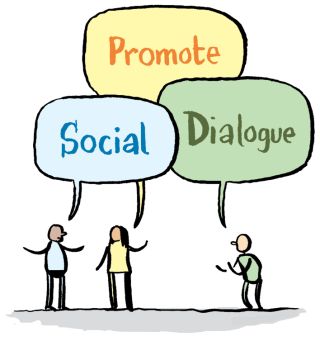The Need for Social Dialogue and Ethical Policymaking

The implementation of a Wellbeing Framework and the development of a new Social Contract requires that Government engage with all stakeholders to develop a series of policy responses that are fit for purpose. The current crises in Ireland demand that all stakeholders have a seat at the table. These issues are too important, and too volatile, to be left to vested interests alone. A new social dialogue is essential to ensure that no-one is left behind in this transition.
Designing policies with an understanding of the moral and instinctual judgements of a population can foster greater political and policy engagement. This in turn, allows for greater collective ownership of the decisions that are made. People's experiences automatically influence their decision-making. The Department of An Taoiseach has responsibility for Social Dialogue however full engagement with all stakeholders has yet to take place. Instead, meaningful consultation on issues such as cost of living is confined to the Trades Union and Business sectors through LEEF, the Labour Employer Economic Forum. These two sectors are, of course, important and the organisations who represent them carry out invaluable work on behalf of their members. However, they do not speak for the Community and Voluntary or Environmental sectors, sectors with a keen insight into the lived experiences of those who bear the brunt of increases in inflation and energy and food insecurity.
A robust social dialogue process provides a structure where current and future challenges can be addressed in a positive manner, acknowledging the task ahead, where reasoned and evidence-based debate forms the basis for decision-making, and where all stakeholders are included in the decision-making process.
Government should develop a new structure for social dialogue to ensure the recovery and resilience plan addresses the key challenges the country is facing. These include infrastructure (e.g. social housing, public transport, rural broadband); services (e.g. healthcare, education, caring); climate change; just taxation; and good governance. These are all issues that impact on the economy and are impacted on by the economy. Ireland needs an approach that addresses these issues simultaneously, not one that gives priority to the economy and hopes the benefits will trickle down, which they never do.